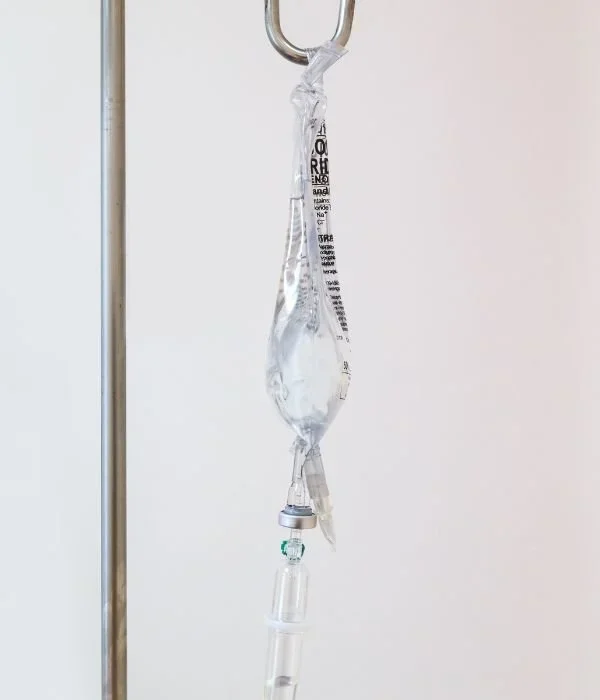Ketamine for Depression in NYC: All You Need To Know
In this article, we explore how ketamine for depression in NYC works, what results to expect, and why it’s an important option for lasting relief. We also highlight how Wele Clinic provides safe, personalized care for individuals seeking hope beyond traditional treatments.
Living in NYC: Some Useful Insights
Living in New York City has always been a balance of opportunities and challenges, but in recent years, many New Yorkers have expressed growing concerns about their quality of life. These concerns matter deeply when we talk about depression, because the environment in which we live, our sense of safety, community, and trust in public institutions, directly affects mental health.
According to the Citizens Budget Commission’s NYC Resident Feedback Survey (2017–2025), perceptions of life in the city have declined significantly compared to pre-pandemic levels. Only 34% of residents in 2025 rated overall quality of life in NYC as excellent or good, a steep drop from 51% in 2017.
Other key findings include:
Neighborhood safety: Only 42% of New Yorkers felt safe in their neighborhoods in 2025, compared to 50% in 2017.
Subway safety at night: Just 22% of residents felt safe in 2025 - less than half of the 2017 figure (46%).
Trust in government services: Ratings for overall city services dropped from 44% in 2017 to 27% in 2025.Use of tax dollars: Confidence here remains strikingly low, with only 11% of residents agreeing that tax dollars are spent wisely.
These numbers reflect more than statistics; they mirror the emotional reality of daily life in New York. When people feel unsafe in their neighborhoods or unsupported by local services, stress and hopelessness can build, contributing to depression and other mental health struggles.
For many New Yorkers, the sense that the city has become less supportive, less safe, and less affordable compounds the personal challenges of living with depression. This makes access to innovative, evidence-based treatments like ketamine therapy all the more vital. They offer not only a medical response to depression but also a measure of hope and stability in an environment where external stressors are high.
What Is Ketamine?
For decades, ketamine was known primarily as an anesthetic used safely in surgical settings. In recent years, however, research has revealed something remarkable: at carefully controlled doses, ketamine can provide rapid relief from the symptoms of depression, even when traditional medications and therapies have not worked.
Unlike standard antidepressants, which often take weeks to show results, ketamine works differently. It acts on the brain’s glutamate system, which is the main chemical pathway involved in learning, memory, and mood regulation. By stimulating new neural connections, ketamine helps “reset” parts of the brain that may not be functioning properly in people struggling with depression.
Ketamine Therapy For Depression In New York City
Depression in New York City has become more than a private struggle; it's a public health challenge shaped by the unique pressures of urban life. Long commutes, financial stress, crowded living conditions, and concerns about safety all add weight to the daily experience of millions of New Yorkers.
When traditional treatments such as antidepressants or talk therapy don’t bring relief, many residents are left feeling stuck in cycles of hopelessness. This is where ketamine therapy offers something different: a chance for faster, more effective relief in a city where time, energy, and resilience are constantly tested.
In a city like New York, ketamine therapy matters because it addresses not just the biological roots of depression, but also the urgency of the need. For individuals who have struggled for years with little progress, ketamine can work within days, providing a lifeline that traditional medications often cannot.
In a city with high rates of depression and limited access to mental health services in some neighborhoods, the availability of safe, evidence-based ketamine treatment has become not simply an option, but an essential bridge toward healing.
Most importantly, ketamine therapy represents hope at a time when many New Yorkers feel overwhelmed by external pressures beyond their control. By helping patients feel relief more quickly, it creates space for them to re-engage with therapy, relationships, and daily life in meaningful ways. In a city that never stops moving, this renewed sense of possibility can be the difference between merely surviving and truly living.
How Well Does Ketamine Work For Depression
One of the most remarkable things about ketamine therapy is how quickly it can begin to relieve symptoms of depression. Unlike traditional antidepressants, which may take six to eight weeks before patients feel a difference, ketamine often produces noticeable improvement within days, sometimes even after the first session. For individuals who have lived with persistent sadness, hopelessness, or loss of interest in daily life, this speed of response can be life-changing.
Clinical studies and years of patient experiences show that ketamine is especially effective for treatment-resistant depression; the kind that doesn’t respond well to standard medications. Research indicates that up to 70% of patients with treatment-resistant depression experience significant improvement with ketamine therapy. While results vary, many describe reduced suicidal thoughts, better mood stability, and a renewed sense of connection to life after treatment.
It’s important to note that ketamine is not a “cure” for depression, but rather a powerful tool that can help open the door to healing. For many patients, ketamine provides enough relief to re-engage with therapy, rebuild routines, and take meaningful steps toward recovery. When paired with ongoing psychiatric care, ketamine becomes part of a comprehensive approach that offers both immediate relief and long-term support.
When Will I See Results
While traditional antidepressants may take weeks to build up in the body before showing benefits, many patients report feeling relief from depressive symptoms within just a few sessions, sometimes even after the first treatment. This rapid response can be especially meaningful for individuals struggling with severe depression or persistent suicidal thoughts, where time is critical.
That said, every person’s journey is different. Some patients may notice immediate improvements in mood, energy, or outlook, while others experience more gradual changes over the course of several infusions. What matters most is that progress, whether fast or steady, is possible - and each step forward can bring meaningful relief.
How Many Infusions Would I Need
Most patients begin with a series of six ketamine infusions spread out over two to three weeks. This initial phase, often called the “induction series,” helps the brain establish new neural connections and sets the foundation for lasting improvement. Research and clinical experience show that this structured approach gives patients the best chance of experiencing meaningful relief from depression.
After the induction phase, the number of additional infusions varies from person to person. Some individuals benefit from occasional “maintenance” treatments every few weeks or months, while others maintain progress with ongoing therapy, medication management, or other supportive care.
Do I Need a Psychotherapist To Deal With My Depression?
While ketamine therapy can bring rapid relief from depressive symptoms, it is often most effective when paired with psychotherapy. You do not have to work with a psychotherapist to benefit from ketamine, but many patients find that combining the two provides more lasting results. Ketamine can “open the door” by easing symptoms and lifting mood, while therapy helps you step through that door by addressing underlying patterns, thoughts, and behaviors.
The difference a psychotherapist can make lies in integration. Ketamine may provide the biological boost your brain needs to reconnect and heal, but therapy helps translate that improvement into meaningful life changes. With the support of a skilled therapist, patients often build stronger coping skills, process painful experiences more effectively, and sustain the progress that ketamine initiates. In this way, psychotherapy and ketamine work hand in hand; one providing rapid symptom relief, the other offering tools for long-term recovery.
At Wele Clinic, we specialize in innovative ketamine therapy for depression, tailoring each treatment plan to the individual. Our team understands that healing isn’t one-size-fits-all, and we work closely with patients to ensure they feel supported at every step of the process. If you’d like to learn more about our approach and how ketamine therapy may help you, we invite you to visit our service page or reach out directly for a consultation.
Start Your Recovery Today with Ketamine Therapy For Depression in NYC
Fill-in the form below and we will contact you as soon as possible:
Where To Find Us
Wele Clinic | Ketamine & Spravato Treatment NYC
1123 Broadway # 1117, New York, NY 10010, United States
Weekly hours:
Thursday: 9 AM - 6 PM
Friday: 9 AM - 6 PM
Saturday: Closed
Sunday: Closed
Monday: 9 AM - 6 PM
Tuesday: 9 AM - 6 PM
Wednesday: 9 AM - 6 PM
FreQuently Asked Questions
1. How does ketamine help with depression?
Ketamine works differently from traditional antidepressants by targeting the brain’s glutamate system. This helps stimulate new neural connections and can “reset” areas of the brain affected by depression, often leading to faster relief of symptoms.
2. How soon will I notice results from ketamine therapy?
Many patients begin noticing improvements in mood, energy, or outlook within days of their first few sessions. While some feel benefits right away, others may see gradual progress across several infusions.
3. How many ketamine treatments are typically needed?
Most patients begin with a series of six infusions over two to three weeks. After that, some require periodic “maintenance” sessions, while others sustain progress through therapy or other ongoing support.
4. Is ketamine therapy safe?
Yes. At our clinic, ketamine therapy is administered under the close supervision of a board-certified psychiatrist in a safe, comfortable setting. Patients are carefully monitored throughout each infusion to ensure safety.
5. Do I need to combine ketamine with psychotherapy?
While ketamine can provide significant relief on its own, combining it with psychotherapy often leads to longer-lasting results. Therapy helps patients integrate their progress, develop coping skills, and make meaningful life changes.
This article was written by Dr. Mehdi Omidvari, founder of Wele Clinic.





